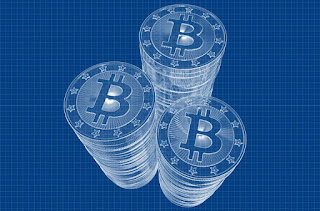Süddeutsche Zeitung, in collaboration with The Consortium For Investigative Journalists, revealed 11.5 million leaked confidential documents from a Panama-based law firm, Mossack Fonseca. The documents reveal a shadowy network of politicians, celebrities and other powerful people concealing their wealth.
While Bitcoin is not directly mentioned in the documents, there are connections between the Papers and the digital currency. Here are some of the individuals named in the documents, and their sometimes loose, sometimes major, connections to Bitcoin. I’ll start with the major connection.
Mexican President Enrique Peña Nieto’s “favorite contractor” was mentioned in the documents, which revealed “a complex offshore network” spread across the world.
At the beginning of April, Andrés Sepúlveda claimed to rig the Mexican election which brought Nieto to power for $600,000. While doing this, he claims to have rented servers in Russia and the Ukraine with bitcoins. He calls the Nieto campaigns “one of the dirtiest Latin American campaigns in recent memory” and “one of his most complex” rigging operations.
Listed in the Papers is Argentine President Mauricio, who met with Richard Branson and spoke with him about Bitcoin, drug control and space flight.
According to the president’s Facebook page, the president “was very interested in the talk as Branson, plus entrepreneur in areas related to new technologies, such as space flight and use bitcoin is entrepreneurial in humanitarian issues.”
On to Russia, where Bitcoin’s have perhaps come most close to being banned. An associate of Russian President Vladimir Putin and Bank Rossiya reportedly laundered hundreds of millions of dollars, allege the Panama Papers.
Russia has a tenuous relationship to Bitcoin. At first, in 2014, the Wall Street Journal reported Russia’s stance was rather benign: “At this stage we need to watch how the situation develops with these kinds of currencies. These instruments should not be rejected,” the Bank of Russia first deputy chairman, Georgy Luntovsky, said.
Yet, in 2016, reports that Russia’s Finance Department has sought to ban bitcoin had dominated Russian headlines about the digital currency. In Article 75 of the bill, there is a passage that reads:
The monetary unit of the Russian Federation is the ruble. The Central Bank of the Russian Federation is the sole issuer of currency. The introduction and issuance of other currencies in the Russian Federation are prohibited.
President Vladimir Putin claimed the leak to be a US plot.
Ukraine’s pro-Western president, Petro Poroshenko, allegedly at the height of violence in Ukraine in 2014, “scrambled to find a copy of a home utility bill for him to complete the paperwork to create a holding company in the British Virgin Islands.”
The story about Bitcoin and the Ukraine is much different than Bitcoin and Russia. In fact,CCN visited some of the 16,000 Bitcoin-enabled ATMs in the Ukraine which went live in 2015.
Further, Bloomberg highlighted that a Ukrainian mining pool had come close to controlling 51% of the overall Bitcoin mining network: “in other words, one organization was on the verge of dominating the emission of Bitcoins.”
Some of quickest fallout from the Panama Papers was the no confidence vote Iceland’s prime minister, Sigmundur Gunnlaugson, would be made to endure. Elected after the nation’s financial collapse, he allegedly failed to declare interest on investments in an offshore company.
Iceland is home to many Bitcoin mines due to cool temperatures. Auroracoin was launched, by an independent developer, as the world’s first nation-state based digital currency. It’s not exactly caught on, and it’s no affiliation to Iceland.
Chinese president Xi Jinping’s family has connections to offshore companies, according to the documents. The president is known for having cracked down on corruption in the country. Jinping claimed technology to be an important part of his platform to grow China’s economy. China accounts for about 80% of Bitcoin transactions in the world.
In more fallout from the Papers, Prime Minister David Cameron admitted to personal profits from an offshore trust.
The British prime minister commanded headlines after declaring a “war on encryption”, more or less. “I think we cannot allow modern forms of communication to be exempt from the ability, in extremis, with a warrant signed by the home secretary, to be exempt from being listened to,” Cameron said. “That is my very clear view and if I am prime minister after the next election I will make sure we legislate accordingly.”
He added: “I have a very simple approach to this issue which is that ever since we faced these terrorist threats it has always been possible, in extremis, with the signature of a warrant from the home secretary, to intercept your communications, my communications, or anyone else, if there is a threat of terrorism. That is applied whether you are sending a letter, whether you are making a phone call, whether you are using a mobile phone, or whether you are using the internet.”
Featured image from Shutterstock.








No comments:
Post a Comment